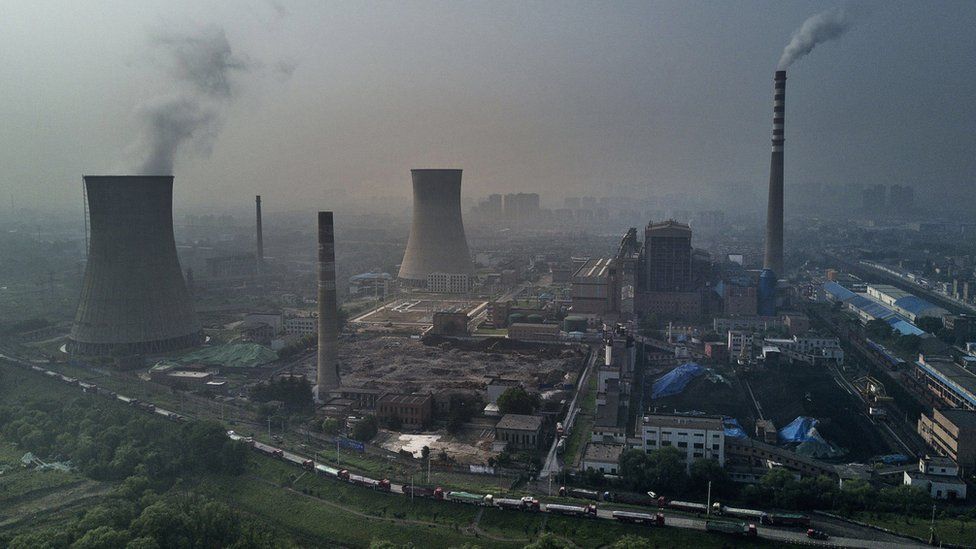An environmental analyst has warned that a boom in China’s coal power generation is derailing global efforts to limit global heating to 1.5C as it has rapidly accelerated plans for new coal power plants in the second half of last year in a bid to increase its energy security.
In a report published by think-tank E3G on Tuesday, China’s coal project pipeline grew by nearly 50% in the last six months of 2022 taking the total to 250GW, whereas combined coal power plans shrank to 97GW over the same period in the rest of the world.
China is still a global leader in the rollout of renewable energy and it continues to add clean energy projects to the grid almost as fast as the rest of the world combined.
However, Leo Roberts from E3G’s coal transition programme believes China’s coal expansion is a “direct threat” to the Paris Agreement goal which is an agreement reached by nations in 2015 to pursue efforts to limit global temperature increase to 1.5°C above pre-industrial levels as crossing that threshold would make climate impacts increasingly harmful to people and the entire planet.
The International Energy Agency (IEA) has also warned that no new unabated coal-fired power stations can be built if the world wants to reach that goal.
“Every new coal power station that comes online increases the scale of the challenge to decarbonise the global economy,” Roberts told reporters. “China’s coal boom is actually undermining significant progress away from coal in all other parts of the world.”
The rapid expansion of China’s coal power plans comes as Beijing seeks to strengthen its energy security. Geopolitical tensions affecting global energy prices and domestic supply issues have made policymakers reconsider previous intentions.
Read also: UN climate fund appoints Duarte as executive director
The recent coal boom has seen China become a clear international outlier as it currently accounts for 72% of total global planned coal capacity, with India, Turkey and Indonesia following far behind.
The aim of China’s coal push is to prevent a repeat of the power outages that affected homes and industries last year. Heatwaves increased electricity demand for cooling, while drying up water reservoirs necessary for hydropower generation in the country’s southwestern provinces.
Meteorological agencies predict another round of record high temperatures and more droughts this year.
However, E3G’s Roberts said it looks as if the Chinese government’s claim that it is new building coal capacity to support peak demand is being used as a cover to push through projects.
“The reality is that most of the permits handed to new coal power stations would allow them to provide baseload power, which slows down the transition from coal-to-clean,” he said.
Story was adapted from CHN.
